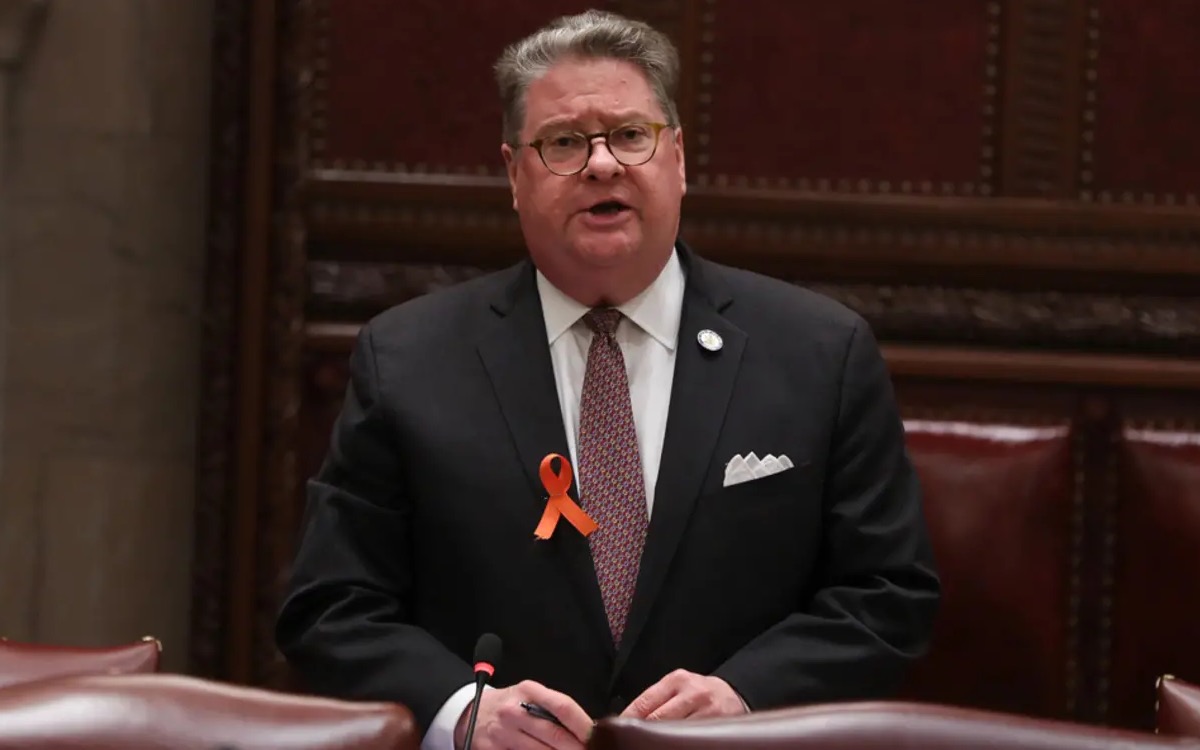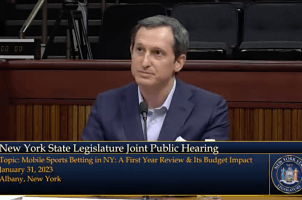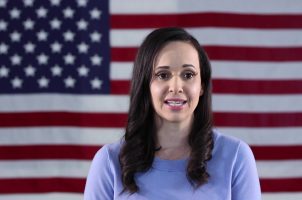New York Senator Files Bill Targeting ‘Predatory’ Sports Betting Bonuses
Posted on: December 2, 2022, 06:59h.
Last updated on: December 2, 2022, 03:44h.
A New York lawmaker wants the state’s Gaming Commission (NYSGC) to establish rules against what he calls “predatory” bonuses given by licensed online sports betting operators.

State Sen. Pete Harckham, D-South Salem, filed Senate Bill S9605 on Wednesday. If passed, it would create a new section of New York’s racing, pari-mutuel wagering, and breeding law. It would mandate the NYSGC draft rules regarding such enticements as deposit matches, “risk-free” bets, free money or wagers, site credits, and profit boosters.
He filed the bill less than two weeks after The New York Times published a series of articles on the US sports betting industry. Harckham even cited findings from one of those articles, which touched on practices used by online sports betting operators to attract new customers and retain them.
The mobile sports betting industry is utilizing targeted advertising that is personally tailored to lure in new customers from right within their homes,” Harckham wrote in the bill’s justification statement. “This means that following legal sports betting in New York State, multitudes of people who were not formerly presented with these predatory practices will fall susceptible to gambling addiction that could have otherwise been avoided.”
Harckham, who chairs the Senate Committee on Alcoholism and Substance Abuse, also noted that other countries, like Great Britain, have placed limits on advertisements for free bets.
In Canada, Ontario officials have also levied fines against operators that have failed to abide by standards that prohibit operators from promoting bonuses in general advertisements.
‘More Safeguards Must Be Put in Place’
Harckham’s bill doesn’t cite any specific measures. It only calls for a new subsection of the state’s gaming call and directs the NYSGC “to promulgate rules and regulations regarding predatory sportsbook bonuses in mobile sports betting.”
If passed, it would take effect if Gov. Kathy Hochul signs it into law.
Industry officials have cited their voluntary support for anti-addiction resources as proof that they can be trusted to operate without stricter government rules, but more safeguards must be put in place as this reporting has illustrated these predatory practices are triggering a spike in gambling addiction,” Harckham said in his justification statement.
The New York Legislature will start its 2023 session on Jan. 4.
Last week, Hochul vetoed a bill that would have created a problem gambling advisory council.
About New York Online Sports Betting
Regulated online sports betting launched in New York on January 8. Last year, the NYSGC approved nine licensed operators through a competitive bidding process.
When the first licensed operators went online 11 months ago, they offered new bettors hundreds or more in promotions. Now, they continue to offer similar incentives to first-time users.
Caesars Sportsbook initially offered a $300 sign-up bonus and a deposit match of $3,000. Currently, it offers a matching free bet of up $1,250 for first-time bettors if their initial wager loses.
DraftKings offers a 20% match for first-time deposits, with the bonus capped at $1,000. FanDuel, meanwhile, offers newcomers a so-called “no sweat first bet” of up to $1,000. If their first bet lost, bettors would receive their stake back in free bet credits.
Through November 27, New Yorkers have wagered nearly $14.6 billion on games through the licensed apps. The operators have reported $1.2 billion in gross gaming revenue over that span.
New York taxes that revenue at 51%, meaning it has received more than $619 million this year. Nearly all of that funding goes to public education. The state sets aside $6 million annually for problem gambling education and treatment purposes.
Related News Articles
New York Gets $709M From Online Sports Betting Taxes in First Year
California Sports Betting Update: State GOP Says No to Both Measures
Most Popular
Mirage Las Vegas Demolition to Start Next Week, Atrium a Goner
Where All the Mirage Relics Will Go
Most Commented
-
Bally’s Facing Five Months of Daily Demolition for Chicago Casino
— June 18, 2024 — 12 Comments
















No comments yet